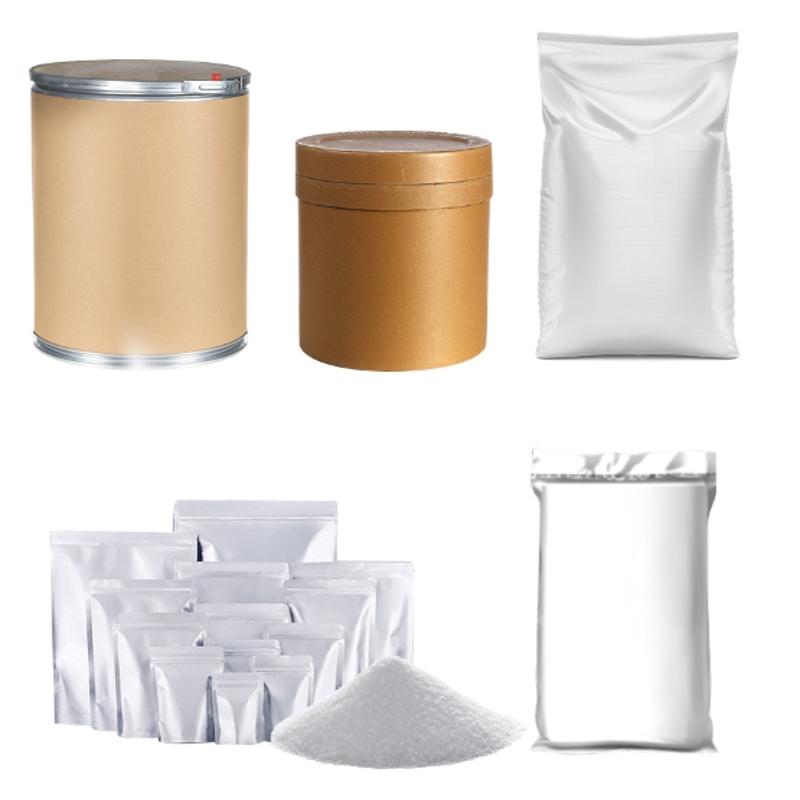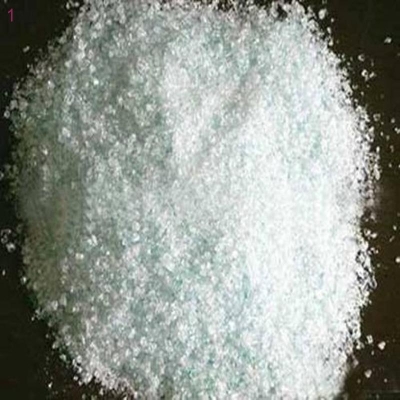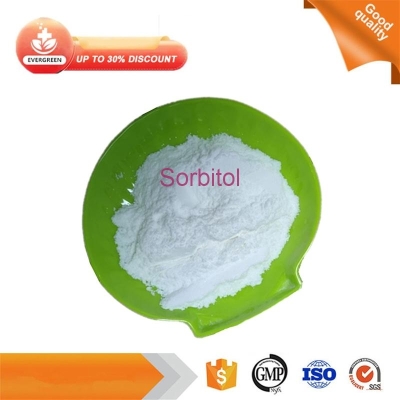-
Categories
-
Pharmaceutical Intermediates
-
Active Pharmaceutical Ingredients
-
Food Additives
- Industrial Coatings
- Agrochemicals
- Dyes and Pigments
- Surfactant
- Flavors and Fragrances
- Chemical Reagents
- Catalyst and Auxiliary
- Natural Products
- Inorganic Chemistry
-
Organic Chemistry
-
Biochemical Engineering
- Analytical Chemistry
- Cosmetic Ingredient
-
Pharmaceutical Intermediates
Promotion
ECHEMI Mall
Wholesale
Weekly Price
Exhibition
News
-
Trade Service
Inhibition of androgen receptor (AR) function is one of the 4 main mechanisms of action of androgen deprivation therapy (ADT) and is the main treatment strategy for advanced prostate cancer
.
Drug research and development targeting AR has been a hot topic for a long time, and it has also continued to promote a variety of drugs into clinical applications
.
At this ASCO GU meeting, the research results of two novel AR inhibitors, ARV-110 and ODM-208, were announced
.
First-in-class ARV-110 protein degrader for the treatment of mCRPC: 46% AR-related mutation patients PSA decline rate ≥50% Background: ARV-110 is a first-in-class oral protein degradation targeting chimera (PROTAC) protein degrader, which can selectively target to AR
.
Treatment options for patients with mCRPC are limited due to reduced tumor dependence on AR after continued treatment
.
Data from previous phase I studies demonstrated that ARV-110 showed some antitumor activity in mCRPC patients treated with previous multi-line regimens, and enhanced activity in patients with specific molecular profiles (such as AR T878 and H875 mutations), so II Phase extension study (ARDENT) further explored the efficacy of ARV-110 in patients with different biomarkers
.
Results of the ongoing Phase I/II study were reported at this meeting
.
Methods: In a phase I study, patients with mCRPC who had progressed after ≥2 prior treatments (enzalutamide and/or abiraterone) received oral ARV-110 (QD or BID) (3+3 dose-escalation design).
)
.
The primary study endpoint is to evaluate the safety of ARV-110 and to determine the recommended dose (RP2D) for phase II clinical studies
.
In a phase II study, mCRPC patients who had previously received 1-2 novel hormonal agents (NHAs) ± chemotherapy were divided into 3 subgroups with different biomarkers: (1) AR T878 and/or H875 mutation group , (2) AR L702H mutation or AR-V7 group, (3) wild-type AR or other AR mutant group
.
A fourth subgroup, independent of biomarkers, was defined by prior treatment history and included ≤1 line of prior therapy, 1 NHA prior, and no chemotherapy
.
The primary study endpoint was to assess the antitumor activity of ARV-110
.
Results: As of December 20, 2021, a total of 195 patients (71 in stage I; 124 in stage II) were enrolled
.
In the Phase I study, ARV-110 was dosed in the range of 35-700 mg QD or 210-420 mg BID; 420 mg QD was identified as RP2D based on safety, pharmacokinetic and efficacy results
.
Among the 28 patients with AR T878A/S and/or H875Y mutations, 46% and 57% of patients had a PSA decline rate of ≥50% (PSA50) and ≥30% (PSA30), respectively (Figure 1)
.
Figure 1 Of the 7 patients with AR T878A/S and/or H875Y mutations, 6 had tumor shrinkage (2 of which had a partial response) and 3 remained on treatment
.
Among the 138 patients treated with RP2D, no grade ≥4 treatment-related adverse events (TRAEs) occurred
.
The most common TRAEs in RP2D-experienced patients were nausea (48%; grade 3: 1%), fatigue (36%; grade 3: 1%), vomiting (26%; grade 3: 1%), decreased appetite (25 %; grade 3: 1%), diarrhea (20%; grade 3: 2%), alopecia (14%; grade 3: 0), increased AST (12%; grade 3: 1%), weight loss (12 %; grade 3: 0) and anemia (11%; grade 3: 5)
.
CONCLUSIONS: As a novel AR protein degrader, ARV-110 exhibits antitumor activity in NHA-treated, previously multi-line regimen-treated mCRPC patients, with the best results in patients with AR T878 and/or H875 mutations.
PSA50 response rate, which may represent an ARV-110 sensitive population
.
The role of ARV-110 in mCRPC patients remains to be further explored
.
CYPIDES STUDY: First-in-human trial of ODM-208 in patients with mCRPC shows promising efficacy Background: ODM-208 is a novel, oral, non-steroidal, selective inhibitor of CYP11A1, the rate-limiting enzyme for steroid biosynthesis
.
ODM-208 inhibits the production of all steroid hormones and their precursors that activate AR signaling
.
The results of its first phase I CYPIDES study in humans were reported at this meeting
.
Methods: The phase I dose-finding trial of ODM-208 adopted a "3+3" design and enrolled patients with progressive mCRPC who had previously received ≥1 line of AR signaling pathway inhibitor and ≥1 line of taxane-based chemotherapy
.
ODM-208 is used in combination with glucocorticoid (GC), mineralocorticoid replacement therapy and ADT, and the dose of ODM-208 does not exceed 150mg/d.
Phase I study endpoints include dose-limiting toxicity (DLT), adverse events, pharmacokinetics Kinetics, pharmacodynamics, PSA, and response rate (RECIST), and exploratory genetic analysis
.
RESULTS: Forty-four patients (median age 70 years) received ODM-208
.
Dose exploration has been completed and the dose range is 10-150 mg/d
.
Twenty-four (55%) patients had previously received abiraterone and enzalutamide, and all patients had received ≥1 taxane chemotherapy
.
Most patients tolerated it, and the main adverse event was adrenal insufficiency (AI)
.
Overall, 14/44 (31.
8%) patients had grade 3 AI events requiring short-term high-dose GC therapy
.
ODM-208 plasma exposure is dose proportional
.
Serum testosterone, serum DHEA sulfate, androstenedione, 11β-hydroxyandrostenedione, 11-ketotestosterone, and pregnenolone were undetectable in almost all patients 4 weeks after starting ODM-208
.
The PSA50 response rate in evaluable patients was 32%, and in AR LBD-mutated patients, the PSA50 response rate reached 68%, and long-term responses (>6 months) were observed (Figure 2)
.
Figure 2 Conclusions: ODM-208 was significantly efficacious in blocking steroid hormone production in previously abiraterone/enzalutamide and taxane-treated men with mCRPC
.
Good antitumor activity was observed in patients with specific AR mutations
.
The Phase II dose-expansion phase of the CYPIDES study is underway
.
References: 1.
Xin Gao, Howard A.
Burris III, Jacqueline Vuky, et al.
Phase 1/2 study of ARV-110, an androgen receptor (AR) PROTAC degrader, in metastatic castration-resistant prostate cancer (mCRPC).
[J].
J Clin Oncol 40, 2022 (suppl 6; abstr 17) 2.
JKarim Fizazi, Natalie Cook, Philippe Barthélémy, et al.
Phase 1 results of the ODM-208 first-in-human phase 1-2 trial in patients with metastatic castration-resistant prostate cancer (CYPIDES).
[J].
J Clin Oncol 40, 2022 (suppl 6; abstr 18)
.
Drug research and development targeting AR has been a hot topic for a long time, and it has also continued to promote a variety of drugs into clinical applications
.
At this ASCO GU meeting, the research results of two novel AR inhibitors, ARV-110 and ODM-208, were announced
.
First-in-class ARV-110 protein degrader for the treatment of mCRPC: 46% AR-related mutation patients PSA decline rate ≥50% Background: ARV-110 is a first-in-class oral protein degradation targeting chimera (PROTAC) protein degrader, which can selectively target to AR
.
Treatment options for patients with mCRPC are limited due to reduced tumor dependence on AR after continued treatment
.
Data from previous phase I studies demonstrated that ARV-110 showed some antitumor activity in mCRPC patients treated with previous multi-line regimens, and enhanced activity in patients with specific molecular profiles (such as AR T878 and H875 mutations), so II Phase extension study (ARDENT) further explored the efficacy of ARV-110 in patients with different biomarkers
.
Results of the ongoing Phase I/II study were reported at this meeting
.
Methods: In a phase I study, patients with mCRPC who had progressed after ≥2 prior treatments (enzalutamide and/or abiraterone) received oral ARV-110 (QD or BID) (3+3 dose-escalation design).
)
.
The primary study endpoint is to evaluate the safety of ARV-110 and to determine the recommended dose (RP2D) for phase II clinical studies
.
In a phase II study, mCRPC patients who had previously received 1-2 novel hormonal agents (NHAs) ± chemotherapy were divided into 3 subgroups with different biomarkers: (1) AR T878 and/or H875 mutation group , (2) AR L702H mutation or AR-V7 group, (3) wild-type AR or other AR mutant group
.
A fourth subgroup, independent of biomarkers, was defined by prior treatment history and included ≤1 line of prior therapy, 1 NHA prior, and no chemotherapy
.
The primary study endpoint was to assess the antitumor activity of ARV-110
.
Results: As of December 20, 2021, a total of 195 patients (71 in stage I; 124 in stage II) were enrolled
.
In the Phase I study, ARV-110 was dosed in the range of 35-700 mg QD or 210-420 mg BID; 420 mg QD was identified as RP2D based on safety, pharmacokinetic and efficacy results
.
Among the 28 patients with AR T878A/S and/or H875Y mutations, 46% and 57% of patients had a PSA decline rate of ≥50% (PSA50) and ≥30% (PSA30), respectively (Figure 1)
.
Figure 1 Of the 7 patients with AR T878A/S and/or H875Y mutations, 6 had tumor shrinkage (2 of which had a partial response) and 3 remained on treatment
.
Among the 138 patients treated with RP2D, no grade ≥4 treatment-related adverse events (TRAEs) occurred
.
The most common TRAEs in RP2D-experienced patients were nausea (48%; grade 3: 1%), fatigue (36%; grade 3: 1%), vomiting (26%; grade 3: 1%), decreased appetite (25 %; grade 3: 1%), diarrhea (20%; grade 3: 2%), alopecia (14%; grade 3: 0), increased AST (12%; grade 3: 1%), weight loss (12 %; grade 3: 0) and anemia (11%; grade 3: 5)
.
CONCLUSIONS: As a novel AR protein degrader, ARV-110 exhibits antitumor activity in NHA-treated, previously multi-line regimen-treated mCRPC patients, with the best results in patients with AR T878 and/or H875 mutations.
PSA50 response rate, which may represent an ARV-110 sensitive population
.
The role of ARV-110 in mCRPC patients remains to be further explored
.
CYPIDES STUDY: First-in-human trial of ODM-208 in patients with mCRPC shows promising efficacy Background: ODM-208 is a novel, oral, non-steroidal, selective inhibitor of CYP11A1, the rate-limiting enzyme for steroid biosynthesis
.
ODM-208 inhibits the production of all steroid hormones and their precursors that activate AR signaling
.
The results of its first phase I CYPIDES study in humans were reported at this meeting
.
Methods: The phase I dose-finding trial of ODM-208 adopted a "3+3" design and enrolled patients with progressive mCRPC who had previously received ≥1 line of AR signaling pathway inhibitor and ≥1 line of taxane-based chemotherapy
.
ODM-208 is used in combination with glucocorticoid (GC), mineralocorticoid replacement therapy and ADT, and the dose of ODM-208 does not exceed 150mg/d.
Phase I study endpoints include dose-limiting toxicity (DLT), adverse events, pharmacokinetics Kinetics, pharmacodynamics, PSA, and response rate (RECIST), and exploratory genetic analysis
.
RESULTS: Forty-four patients (median age 70 years) received ODM-208
.
Dose exploration has been completed and the dose range is 10-150 mg/d
.
Twenty-four (55%) patients had previously received abiraterone and enzalutamide, and all patients had received ≥1 taxane chemotherapy
.
Most patients tolerated it, and the main adverse event was adrenal insufficiency (AI)
.
Overall, 14/44 (31.
8%) patients had grade 3 AI events requiring short-term high-dose GC therapy
.
ODM-208 plasma exposure is dose proportional
.
Serum testosterone, serum DHEA sulfate, androstenedione, 11β-hydroxyandrostenedione, 11-ketotestosterone, and pregnenolone were undetectable in almost all patients 4 weeks after starting ODM-208
.
The PSA50 response rate in evaluable patients was 32%, and in AR LBD-mutated patients, the PSA50 response rate reached 68%, and long-term responses (>6 months) were observed (Figure 2)
.
Figure 2 Conclusions: ODM-208 was significantly efficacious in blocking steroid hormone production in previously abiraterone/enzalutamide and taxane-treated men with mCRPC
.
Good antitumor activity was observed in patients with specific AR mutations
.
The Phase II dose-expansion phase of the CYPIDES study is underway
.
References: 1.
Xin Gao, Howard A.
Burris III, Jacqueline Vuky, et al.
Phase 1/2 study of ARV-110, an androgen receptor (AR) PROTAC degrader, in metastatic castration-resistant prostate cancer (mCRPC).
[J].
J Clin Oncol 40, 2022 (suppl 6; abstr 17) 2.
JKarim Fizazi, Natalie Cook, Philippe Barthélémy, et al.
Phase 1 results of the ODM-208 first-in-human phase 1-2 trial in patients with metastatic castration-resistant prostate cancer (CYPIDES).
[J].
J Clin Oncol 40, 2022 (suppl 6; abstr 18)







